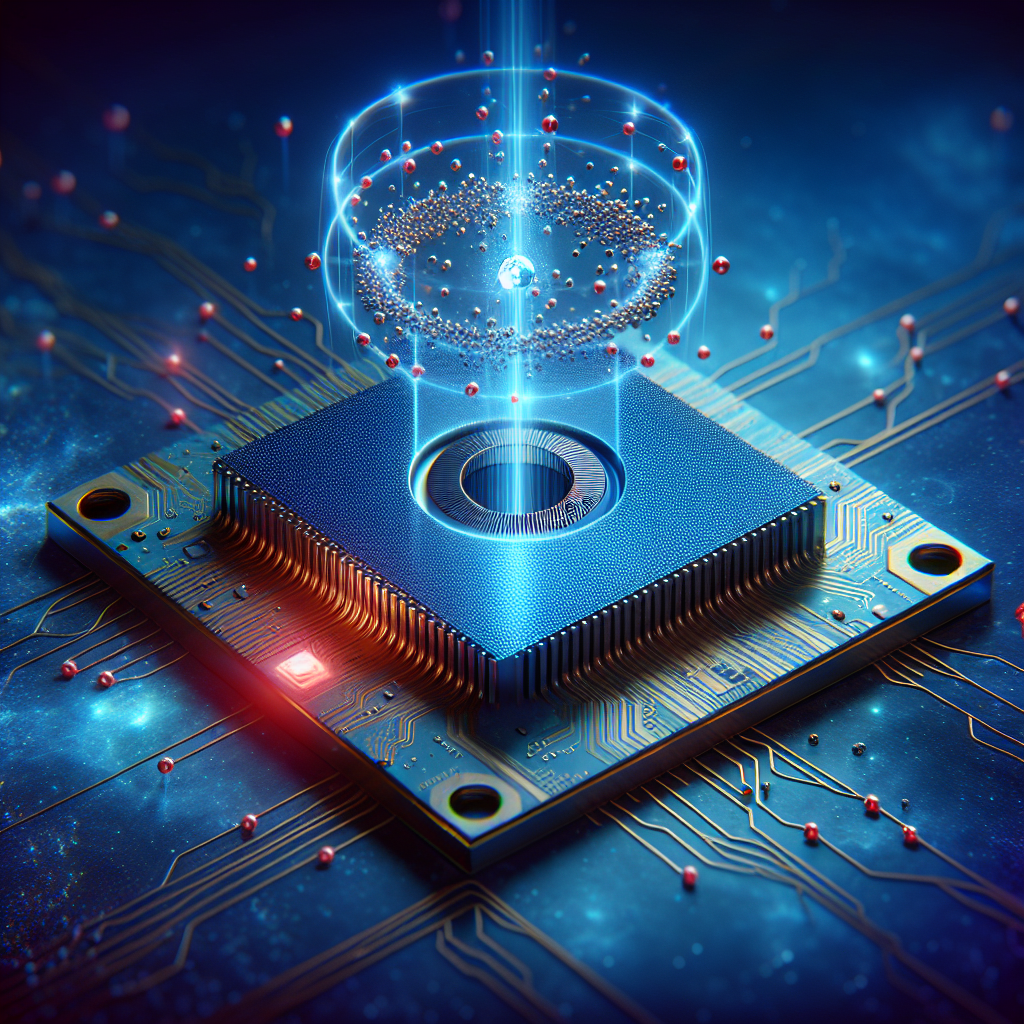Science
Magnetic Breakthrough Promises to Elevate Quantum Computing

Quantum computing is experiencing a transformative moment with the introduction of a novel magnetic technique that has the potential to significantly enhance the stability and efficiency of quantum systems. Researchers and technology firms are increasingly focused on addressing challenges such as decoherence and error rates, which have hindered the full utilization of quantum capabilities.
Understanding the Landscape of Quantum Computing
Quantum computers operate on the principles of quantum mechanics, utilizing qubits instead of classical bits. While classical bits represent either a 0 or a 1, qubits can exist in multiple states simultaneously, a phenomenon known as superposition. Additionally, entanglement allows qubits to be interconnected, facilitating parallel processing across vast scales. Despite their promise, current quantum systems face significant obstacles, primarily due to decoherence, which compromises the quantum state of qubits. Addressing these challenges is critical for unlocking the true potential of quantum computing.
Magnetic Techniques: A Promising Solution
Recent studies have unveiled a magnetic technique that shows considerable promise in improving the performance of quantum computers. By employing tailored magnetic fields, researchers can gain finer control over qubits, resulting in enhanced coherence times and reduced error rates. This heightened control is essential for executing quantum gates—fundamental components of quantum algorithms—with precision.
The magnetic approach not only protects the integrity of qubits from external noise but also enhances the overall fidelity of computations. This is particularly vital as researchers strive to build larger and more efficient quantum processors capable of handling thousands or even millions of qubits.
One of the most significant challenges in quantum computing is scalability. Traditional systems, such as those relying on superconducting circuits or trapped ions, encounter difficulties when attempting to expand their qubit count. The new magnetic techniques may simplify the interactions and integration of qubits, thereby facilitating more effective scaling. This reduction in complexity may lead to the development of sophisticated quantum processors that are easier to manufacture.
Additionally, the operation of quantum computers typically requires extremely low temperatures to minimize thermal noise, necessitating expensive cooling systems. The magnetic technique may allow for less stringent temperature requirements, enabling qubits to remain stable in higher thermal environments. Researchers are currently investigating how magnetic fields can help maintain qubit stability even at room temperatures, potentially making quantum computing more accessible.
The implications of this magnetic technique extend beyond hardware improvements. Enhanced quantum algorithms could emerge, particularly in fields such as optimization problems, cryptography, and material science simulations. The ability to reduce error rates and improve coherence will enable these algorithms to perform calculations more efficiently than classical counterparts. For instance, advancements in understanding complex molecular interactions could accelerate drug development, leading to more effective treatments.
Future Outlook and Collaborative Efforts
As research progresses, collaboration among physicists, engineers, and computer scientists will be crucial to fully exploit the potential of the magnetic technique. Initial findings are encouraging, yet the journey toward practical applications will require robust experimental validation and optimization.
The magnetic technique signifies more than just a technical advancement; it represents a paradigm shift in how quantum computing is conceptualized. By reimagining the foundations of qubit control and scalability through magnetic methods, researchers may be on the brink of realizing a future where quantum computers are integral to technological solutions, tackling problems previously thought insurmountable.
In conclusion, the introduction of the magnetic technique marks a pivotal moment in the evolution of quantum computing. Its potential to enhance qubit control, improve scalability, and reduce error rates indicates a promising path toward harnessing the true power of quantum mechanics. While challenges persist, the future of quantum computing appears increasingly optimistic, with revolutionary implications across various industries and everyday life. The exploration into this new frontier has only just begun, and the possibilities are as vast as the quantum realm itself.
-

 Science2 months ago
Science2 months agoInventor Achieves Breakthrough with 2 Billion FPS Laser Video
-

 Health2 months ago
Health2 months agoCommunity Unites for 7th Annual Into the Light Walk for Mental Health
-

 Top Stories2 months ago
Top Stories2 months agoCharlie Sheen’s New Romance: ‘Glowing’ with Younger Partner
-

 Entertainment2 months ago
Entertainment2 months agoDua Lipa Aces GCSE Spanish, Sparks Super Bowl Buzz with Fans
-

 Health2 months ago
Health2 months agoCurium Group, PeptiDream, and PDRadiopharma Launch Key Cancer Trial
-

 Top Stories2 months ago
Top Stories2 months agoFormer Mozilla CMO Launches AI-Driven Cannabis Cocktail Brand Fast
-

 Entertainment2 months ago
Entertainment2 months agoMother Fights to Reunite with Children After Kidnapping in New Drama
-

 World2 months ago
World2 months agoR&B Icon D’Angelo Dies at 51, Leaving Lasting Legacy
-

 World2 months ago
World2 months agoIsrael Reopens Rafah Crossing After Hostage Remains Returned
-

 Business2 months ago
Business2 months agoTyler Technologies Set to Reveal Q3 Earnings on October 22
-

 Health2 months ago
Health2 months agoNorth Carolina’s Biotech Boom: Billions in New Investments
-

 Health2 months ago
Health2 months agoYouTube Launches New Mental Health Tools for Teen Users









